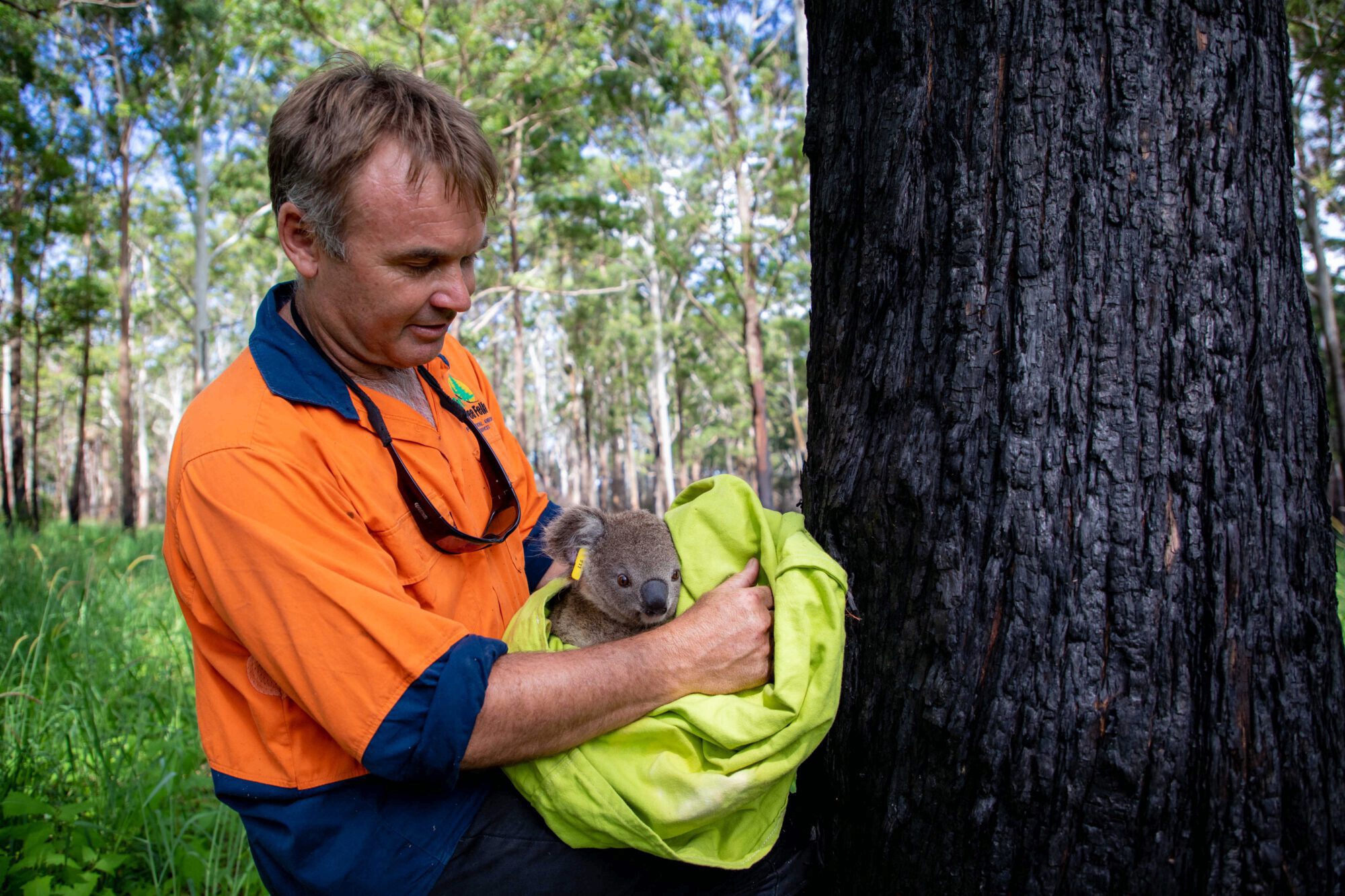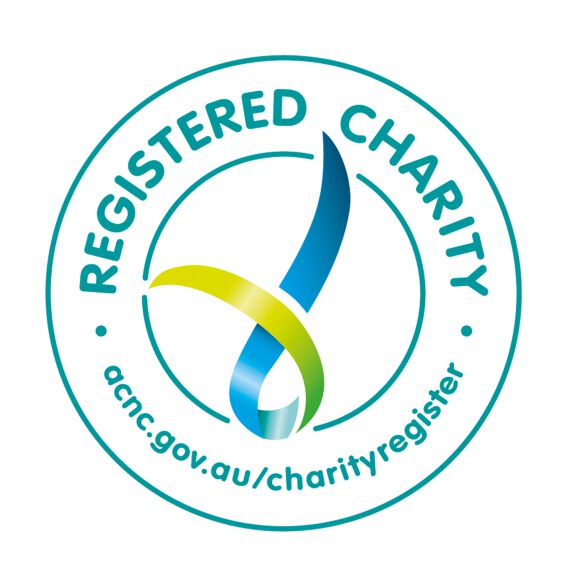Rescue
Our 24 hour 7 days a week rescue telephone line receives calls from concerned members of the public. We admit koalas from across NSW, with the majority coming from the mid north coast. Trained experienced rescuers are called out in the middle of the night or during bad weather. The Rescuers carefully bring a koala down from a tree; secure it for safe transportation; and they understand koala behaviour.
On admittance, the koala patients are examined, treated and cared for at the Hospital. Orphaned joeys are looked after by our home carers until they are mature enough to be transferred to pre-release rehabilitation yards at the Hospital.
Fireground Search and Rescue
The hospital has trained, qualified bushfire search and rescue teams who are called to do search work in NSW and sometimes interstate. The number of koalas admitted annually average around 250, with spikes in admissions during bushfire events.
Members of our Rescue Team have undergone Fireground Awareness Training and are skilled in fireground search and rescue. Search methods vary, dependent mainly on the terrain. Generally, team members will spread out, forming a long line and slowly walk through the fireground together. We scan the ground ahead of us, and methodically search each trunk and branch of every tree. We continually turn to inspect the same trees again from the opposite side. We search not only the trees in front of us, but also to the sides where the other team members are searching. It often occurs that a koala is spotted from an angle to one side, and is only visible from that viewpoint.
Koalas are notoriously difficult to find in the trees. This is especially the case when they are burnt, because they appear smaller and are a similar colour to the charred trees around them.
Burnt koalas are handled with particular care and are transported directly to the Koala Hospital for emergency treatment and care.
Rehabilitation
Some koalas following treatment are not suitable for release and can become permanent residents on exhibition at the Koala Hospital. Exhibition koalas all have a story to tell and can be observed comparatively closely, enabling visitors to increase their understanding of this unique Australian species and the threats to their survival. Koalas in rehabilitation, who we are preparing for release back to the wild, are not on exhibition and cannot be viewed by the public.
The Hospital’s priority is always animal welfare. Some koalas whose prognosis is poor are euthanased to prevent further suffering.
We have worked with Port Macquarie Veterinary Hospital since the early 1980s. The team at the PMVH do all the orthopaedic surgery and radiography for the Koala Hospital.
Release
Whether koalas have been in long term rehabilitation, or if we are simply moving them out of harm’s way, koalas are released back to their home range. If we are unable to return them to the exact tree from which they were rescued, we release them as close to that tree as possible.
After a juvenile koala separates from its mother, at between 12 and 20 months of age, it searches for an area of forest where it can peacefully go about its koala business, eating and sleeping. Rival adult koalas will chase away less dominant individuals from their home range. The dispersing juvenile must continue on with its search for its own home range until it finds a place where it does not frequently encounter other dominating koalas. This is where a juvenile will remain, and become familiar with its home range over many years. As it develops with age the koala may lose or gain habitat depending on its social standing and dominance in the population.
When a koala is relocated out of its home range, it searches for trees, scents or landmarks which are familiar to it. Koalas do not feel comfortable living in unfamiliar territory, and as they search for the familiar, they encounter increased risks by crossing roads and entering properties with dogs. They also risk losing fitness, and can become more susceptible to illness or disease if they do not eat and rest enough.











